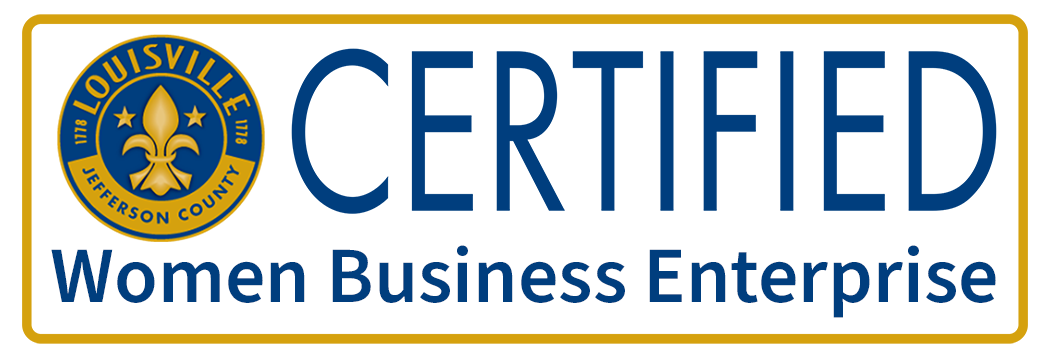Have you seen the movie “Yes Day?” In it, the parents set a day aside for their kids where they cannot say no to anything the kids ask to do. If they want a 50-scoop ice cream dish for breakfast, the answer is yes. An amusement park while dressed as clowns? Yes. Going through the car wash with the windows down? Yup.
If these have you cringing, think about this. Only 54% of people from a survey with Carnegie Mellon University actually update their systems when prompted and of those 54%, 65% of them delayed the updates. Remember the WannaCry malware that ravaged computers across the world? Yeah. Microsoft had released a patch two weeks prior to the breakout that would have prevented that very malware.
As annoying as those update requests are, and despite coming at the most inconvenient times, software updates are the one thing you should always say yes to. Norton gives us 5 reasons why:
1. More than just an update
Usually, these updates are not only about adding new emojis or fonts. But it is all about revisions, including repairing security holes, and removing computer bugs.
2. Updates help keep your data safe
If just the thought of chocolate has you diving for the candy bar, the thought of a security flaw is as attractive to a hacker as the chocolate is for you. Hackers love these security flaws, or vulnerabilities, and will make every effort to get to the prize.
Norton defines a software vulnerability as a security hole or weakness found in a software program or operating system. Hackers take advantage of the weakness by writing a specific code to target the vulnerability. The code is then packaged into malware — short for malicious software.The malware can be used to gain control of your computer and encrypt all of your files in such a way that you cannot recover them without giving in to the hacker.
Software updates often include software patches that cover up those security holes and keep hackers out.
3. Don’t you want to keep your data safe?
As we explained above, hackers exploit security vulnerabilities with the intention of stealing your data.And like most of us, you probably keep a lot of documents and personal information on your devices. Things such as your personally identifiable information — from emails to bank account information — and this is the ultimate goal of the hackers.With this information, they can either steal your identity and commit crimes in your name, or sell it on the dark web to others who want it for a similar purpose.
In short. Saying yes to that update helps keep hackers out.
4. It’s not all about you
Ok, well maybe not ALL about you – but your actions can affect others on your network.Malware, like human viruses, is specifically built to find new hosts to attack.Anyone else who is also on the network is at significant risk of the virus moving from your system to theirs.
If the above reasons don’t get you clicking that yes immediately the next time a software update is prompted, then maybe think about your friends, coworkers, and family and the potential harm your “no” could cost.
5. You deserve the best
Tied in with the security updates usually found in the software updates, all of the fixed bugs and reduced crashes are going to help you be more efficient and even ahead of the game.Raise your hand if you have had to sit on the phone with a customer service rep while their computer takes 5 minutes to access the needed information….pretty sure we all have.You don’t want to be that one.
How to ensure remote workers are productive while working from home
While overall remote work has risen by 173% since 2005 and is largely driven by COVID mitigation efforts, there is no denying that this concept is here to stay in this post-COVID time.97% of workers do not want to return to the office and 40% of workers are still working from home.
But remote working requires a different way of managing your workers. Beyond continuing to maintain KPIs and deadlines, you also need to check in on their motivations, engagements, and proactivity of their assignments. Apollo Technical talent services say there are 3 red flags to look out for that might signal an employee is struggling. They are:
- They lose initiative. Apollo says to look for an uptick in phrases such as “we can’t do that” or “it won’t work.” It can signal that they are becoming more reactive instead of proactive in their duties.
- They increasingly display a “victim mindset.” One of the downsides of remote work is that the worker is, well, alone. There is a lot to say about the team-building advantages of being on-site, and remote workers frequently feel they are “shunned” which leaves them feeling disengaged. Key phrases that can indicate this mindset are “they never tell me the updates” or “I always have to clean up their mess.”
- They no longer communicate openly. When your remote employee starts keeping quiet about problems they are facing, either with work or personal lives or suddenly prefer to work alone instead of with teammates are an indicator that they have become disengaged.
The advantages of remote work for both your employees and your overhead in terms of better employee retention, higher productivity, and higher job satisfaction are overwhelming. There are challenges, of course, but with the right strategy and information, you can work to make sure your employees remain engaged and at the top of their game.
BYOD – The Dangers You Need to be Aware of for Your Business
There is no denying that the business technology landscape has changed rapidly, especially since the invention of the smartphone. Now, with remote and hybrid work taking over the traditional ways of working, and workers requesting to use their own devices to access their work information, the inherent risks to your data are greater. Here are the top BYOD risks you need to be aware of as you work to meet both your employees’ needs and the security of your business data:
- Theft of Data – Not all apps are created equal.Some apps that the user can download may not have the same stringent security protocols as the IT-approved applications.Any breach in one of these personal applications could result in your business data also being breached.
- Malware/ransomware – Yes, it is possible to download malware or ransomware on a mobile device.If an employee mistakes an infected PDF or other files for legitimate business documents and downloads, a virus or malware can be installed on their phone and then transferred to your internal network the next time your employee logs onto it.Much of this can be solved with employee training on the types of things to look out for and empower them to recognize a suspicious file or app before downloading.
- Loss of devices either by accident or stolen – They are called mobile devices for a reason. They go with you. Unlike a desktop computer that cannot easily be moved between multiple locations, tablets and smartphones go wherever you go. This increases the chances that the device could be stolen or lost. This goes into our next danger:
- Improper mobile security by the user – If your employee loses their device or it is stolen, you might rely on the built-in security controls of the device itself (I.E. Apple’s Find My Device which can lock down the device) but this is not always available. If the user fails to properly secure the device with strong passcodes (or any passcode at all) your data could be accessible to anyone who finds the device.
- Shadow IT – One of the things that BYOD has caused is an increase in Shadow IT.Shadow IT is when employees download an application outside of IT’s approved applications and uses it for business purposes.N-Able found that 80% of workers admit to downloading a SaaS application at work without IT approval.The more “Shadow” applications attached to your network increase your risk of a breach.If you don’t know it’s there, you don’t know to look out for it.
If you don’t have an internal IT Team to help you manage all of these variables, a cybersecurity-certified MSP provider can help you make sure your business data is safe.
Letter from the CEO
With many of us looking forward to relaxing this summer, either by the pool, ocean, or mountainside, there is one thing that we cannot let our eyes off and that is the security protocols in place on both your business and personal data. New scams are popping up every day. I just heard of one the other day where someone you think is a friend from your friends list on Facebook will ask for your email/phone number saying they’ve forgotten it, or their phone had to be replaced, etc. You get the point. But with this information, they are trying to access your Facebook profile and take it over to move on to targeting your friends.
As always, you need to be vigilant so our summertime parties don’t become summertime downers.
Dan Kanabroski
Director of Sales and Marketing
Warren Technology Inc.
dkanabroski@warrentechnology.com
WarrenTechnology.com
Office hours
Office hours:
M-F 9:00 AM to 5:00 PM






